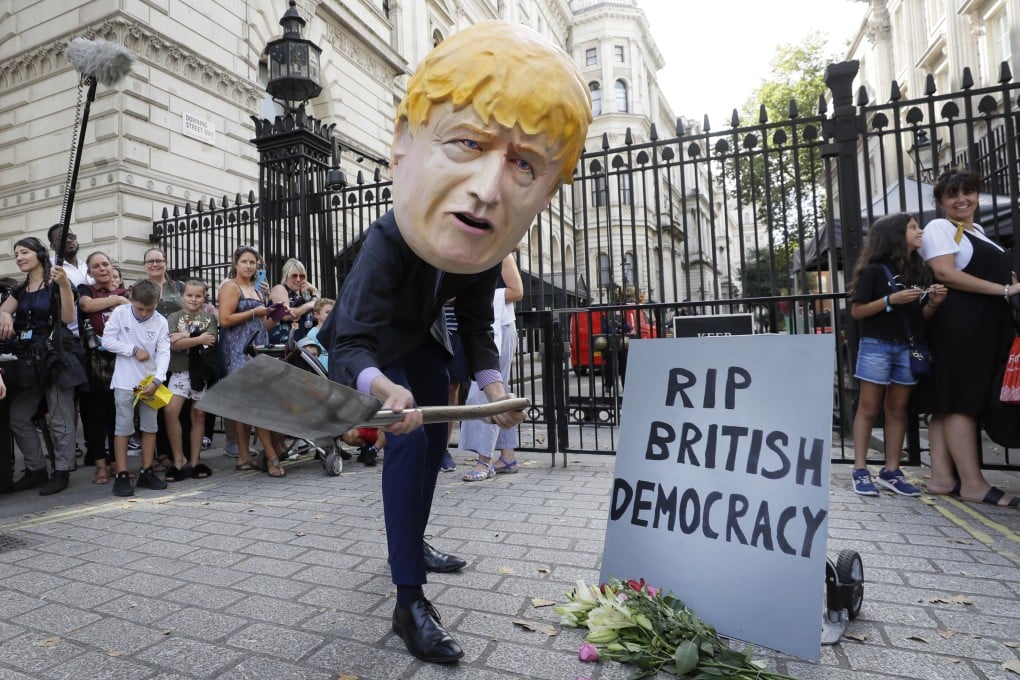Is UK democracy dead? Boris Johnson’s Brexit gambit sparks ‘constitutional outrage’
- UK PM Boris Johnson forces suspension of Parliament weeks before Britain’s EU departure date
- Opposition figures labelled move ‘a smash and grab on our democracy’ and ‘a very British coup’

This year’s family summer holiday at her castle in Balmoral, Scotland, had already been a troublesome one for the 94-year-old Queen Elizabeth.
Her second son Prince Andrew has been facing accusations of forced sex with a minor procured for him by the late financier Jeffrey Epstein.
If that wasn’t bad enough, grouse shooting on the estate was cancelled due to a fall in bird numbers, the result of an alarming decline in the insects they feed on.
Then, on Wednesday she received a visit from three members of the Privy Council – on the behest of Prime Minister Boris Johnson – asking her to suspend the UK Parliament for five weeks.
Johnson and his allies claim he asked for the prorogation, as the procedure is called, to reset the government culminating in the Queen’s Speech on its new domestic programme on October 14.
After taking into account three weeks recess already scheduled for party conferences, it would in effect give MPs just a few days to discuss and possibly thwart Johnson’s plans to leave the European Union which he has promised will take place on October 31, deal or no deal.